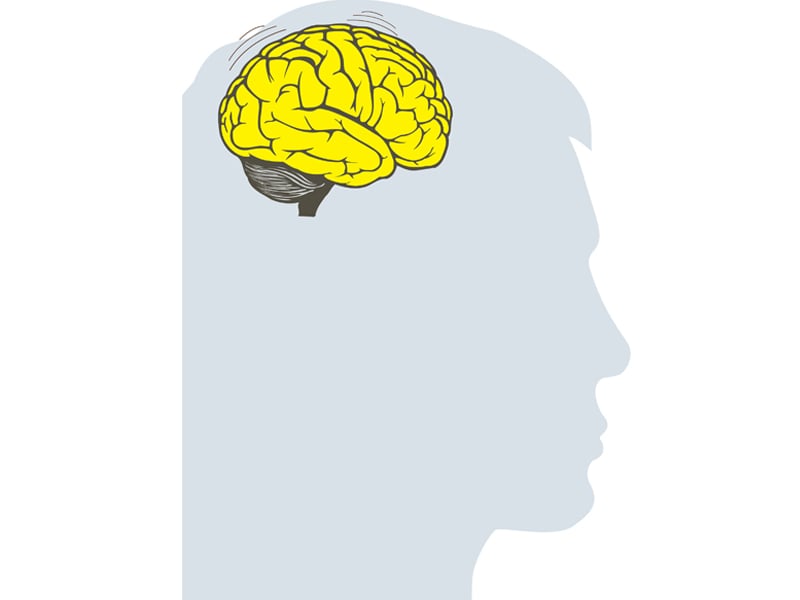
“He is bouncing off the walls, he cannot sit still, he goes up and down the stairs a thousand times a day, jumps off the sofa or bed,” says Faiza, who’s son has AD/HD. “He does not pay attention to homework and needs constant redirection to do anything. He does not listen to me when I talk to him. He is an intelligent kid but does not live up to his potential,’’ she says describing her eight-year-old son Musa’s behaviour to the doctor. These are some of the common complaints from the parents of children diagnosed with AD/HD.
AD/HD is a neuro-developmental disorder, with both genes and environmental factors linked to its development. Different studies have shown that five to ten per cent of the American population has AD/HD. In Pakistan, the disorder is grossly undiagnosed, under-diagnosed or misdiagnosed with most young patients suffering from verbal and physical abuse by their families, peers and teachers. The untreated or under-treated AD/HD, can take a significant toll on the life of the person and society.
If untreated, some of the children have greater chances of developing adult AD/HD with more symptoms of inattentiveness, forgetfulness and difficulty in organising tasks. These are the people who often lose their cell phones or keys and miss appointments. They are always on the go and feel an urge to keep themselves busy and find different things at home to fix. They find long conversations boring, and relaxation, even on a vacation, a difficult concept to grasp. However, it should be kept in mind that not every person who is active, disruptive and inattentive has AD/HD. To be absolutely sure, one needs a clinical diagnosis that involves examinations and collateral information with extensive personal histories.
The treatment for AD/HD is multi-tier, and a comprehensive approach is necessary for symptoms control with a psychiatrist, therapist, parents and teachers taking part by forming a team. Psycho-education covering the diagnosis, treatment and prognosis should be provided. A child psychiatrist should monitor medication (which have established their effectiveness in clinical trials), whereas a therapist should teach the child to behave differently in difficult situations. Similarly, parents need to be educated in effective parenting skills that include setting of boundaries and rewards for better behaviour. The treatment should be revisited at appropriate intervals and frequent feedback from all members of the treatment team should be incorporated before deciding what to do next. Physical and verbal punishment has a counterproductive effect on the treatment and should be avoided.
Unfortunately, there is a scarcity of child psychiatrists in Pakistan. According to the World Health Organisation, there are only 320 psychiatrists in Pakistan to deal with 176 million patients. There is a pressing need for psychiatrists, pediatricians and general practitioners to learn more about AD/HD in order to provide diagnosis and treatment. It is often the right help at the right time that can draw the dividing line between a jail and a job for these patients.
Published in The Express Tribune, Sunday Magazine, December 8th, 2013.
COMMENTS (4)
Comments are moderated and generally will be posted if they are on-topic and not abusive.
For more information, please see our Comments FAQ

















While discussing the attention deficint/hyperactivity disorder in children what our doctors forget is the role homoeopathy can play in effectivley addressing the problem.
A recent trial in homoeopathy showed satisfactory results. Major advantages of homeopathy are the easy administration, no side effects except for a possible short initial aggravation, and no abuse potential.
Can you suggest some good doctors (child psychiatrists) in Islamabad/Rawalpindi, who are treating AD/HD?
Thanks hasan bhai for the informative article. Its indeed true that pakistan lack psychiatrists alarmingly and lack of appropriate awareness leads to public staying away from psychiatrist in order to avoid labeling them as mentally ill or challenged. I bet a lot of people might be suffering from PTSD but lack of sx awareness would prevent them from seeking help. Anyways its a big topic and your efforts are appreciated. I think ut should be translated in english to involve even larger part of our public. Thanks
Dear Dr. Hassan Majeed, Very good effort & contribution. Keep it up. Dr. M. Khawar Nazir